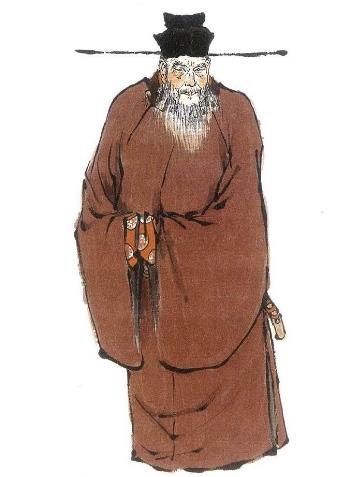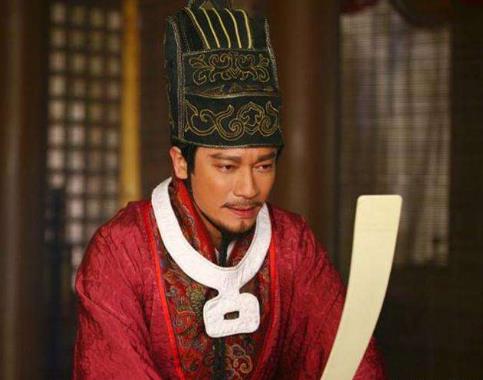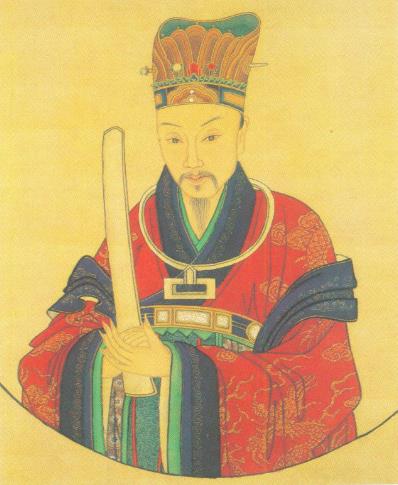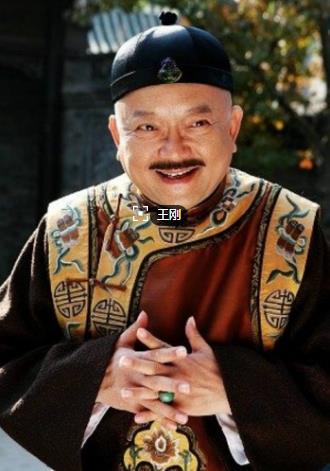In Chinese history, there is a class of people called treacherous ministers. They have done all kinds of bad things and left a bad reputation for thousands of years. So, what kind of person is a traitorous minister? “History of the Ming Dynasty” believes that a traitorous minister is one who “steals prestige, creates chaos, shakes the sect, kills loyal and good people, has evil intentions, and is a lifelong thief”. This is not without reason. Just as a favored minister is not equal to a powerful minister, a villain is not equal to a traitor.
However, although such treacherous officials did many evils, they were not all incompetent. In fact, some treacherous officials were talented and possessed unique skills. For example, the following four treacherous ministers.
1. Cai Jing
Cai Jing is a famous treacherous official in Chinese history. Cai Jing, Tong Guan, Wang Fu (fu), Liang Shicheng, Zhu Mian (mian), and Li Bangyan are known as the “Six Thieves of the Northern Song Dynasty”. Cai Jing was the head of the six thieves in the Northern Song Dynasty. These six people were corrupt, broke the law, did evil, ran amok, and made the people miserable. People at the time sang: “Break the barrel (Tong Guan) and throw the vegetables (Cai Jing) and it will be a good world on earth.”
It is said that Cai Jingtian has the appearance of a treacherous minister, fierce and cunning, and wielding power. Cai Jing used to be a follower of Wang Anshi’s reform. Wang Anshi was demoted, and he actively supported the conservative Sima Guang, who was praised by Sima Guang. From this point of view alone, Cai Jing is an opportunist, and he will take refuge in whoever is in power in the court. Moreover, in front of Song Huizong, Cai Jing tried his best to flatter and flatter him, encouraging Song Huizong to use all the financial resources of the four seas and nine states to satisfy his own enjoyment. It is also because of his great promotion of Huashigang, which caused great disasters to the people in the southeast, and led to the Fangla Uprising, which dealt a heavy blow to the Northern Song Dynasty.

Of course, Cai Jing’s final ending was also miserable. After the fall of the Northern Song Dynasty, Cai Jing was exiled to Lingnan. On the way, the people did not sell him a soup or a meal. Finally, in a ruined temple, Cai Jing, who was so hungry and dizzy, swallowed his saliva and died. There was no coffin after his death, and he was buried in the Louze Garden, which is dedicated to burying the homeless.
But it is worth mentioning that Cai Jing is very talented. He was a child prodigy since he was a child. It is said that he could memorize “Yueyang Tower” when he was 4 years old. Later, he became a Jinshi when he was 23 years old, and he was still ranked ninth. He was a Jinshi in the third year of Song Shenzong Xining.
So Cai Jing is actually a person with good academic performance, and later became an official with his own efforts and talents. And Cai Jing has a more powerful skill, that is his calligraphy.
Cai Jing has a deep attainment in the art of calligraphy, and his calligraphy is self-contained. In fact, Cai in the four calligraphy masters of the Northern Song Dynasty, Su, Huang, Mi, and Cai, refers to Cai Jing, but Cai Jing’s reputation is too bad, and he was replaced by Cai Xiang later. .
Cai Jing’s calligraphy even Mi Fu, a great calligrapher who is proud of his talents, once said that his calligraphy could not keep up with Cai Jing. Once Cai Jing asked Mi Fu: “Who is the best in calligraphy today?” Mi Fu replied: “Since Tang Liu took power, it has to be you and your younger brother Cai Bian.” Cai Jing asked again: “What’s next?” Mi Fu Said, “Of course it’s me.”
There is another story about Cai Jing’s calligraphy. It is said that one summer, there were two court officials who flattered and flattered Cai Jing, fanning him constantly with fans. As soon as Cai Jing was happy, he asked for a fan, and wrote two lines of Du Fu’s poems on it.
Unexpectedly, a few days later, the two officials suddenly became rich. Cai Jing asked curiously why. Finally, it turns out that their fan was bought by Duan Wang for 20,000 yuan.
King Duan was later Song Huizong. We know that Song Huizong was also talented and had a high attainment in art students. No wonder the two became good friends.
In the late Northern Song Dynasty, 20,000 yuan was equivalent to the total income of a middle-income family in Tokyo City for a year.
2. Qin Hui
Qin Hui, a treacherous official, is almost a household name. He is probably the most famous treacherous official in Chinese history. Qin Hui belonged to the main peace faction in the Southern Song Dynasty, and pursued the policy of cede land, proclaim himself a minister, and pay tribute. During the second visit to the prime minister, he tried his best to denigrate the anti-gold soldiers and prevent the recovery. At the same time, he formed a private party, repelled dissidents, and repeatedly set up big prisons. He is one of the famous treacherous ministers in Chinese history.
And Qin Hui is most famous for framing and killing the father and son of the famous anti-gold general Yue Fei, creating “unnecessary” charges. “Unnecessary” has even become synonymous with framing and unjust imprisonment in China.
However, Qin Hui is as talented as Cai Jing. Qin Hui was also born in the imperial examination. He was a Jinshi at the age of 25. His calligraphy attainments are also quite high. He is good at writing calligraphy, especially good at seal script. Later Ming Dynasty historian Tao Zongyi called his characters “quite impressive”. What’s more worth mentioning is the “Song style” that is popular now and used by Chinese people every day. It is said that it came from the hands of Qin Hui.

It is said that when Qin Hui was dealing with official documents, he found that the fonts of these official characters from all over the country were inconsistent and very irregular, so he devoted himself to studying the fonts, decided to implement a standard, and finally selected the “thin gold body” of Song Huizong. Qin Hui created a unique font based on it.
Later, after the emperor discovered this “font” created by Qin Hui, it was widely promoted throughout the country. So much so that this font gradually evolved into the “Song typeface” used for printing. Zhao Ji’s “thin gold style” is in the same line as Qin Hui’s “Song style”, so that some people say that Song style is the printed style of “thin gold style”.
In fact, Arial is still the most widely used font until now.
However, there are doubts about this matter in history. Some people think it is not, and some people think it is. The main reason is that Qin Hui is a treacherous minister. Therefore, Qin Hui’s font is not named Qin style, but Song style. We don’t know which is right and which is wrong, but there is no doubt that Qin Hui has a high attainment in calligraphy.
3. Yan Song
Yan Song is also a well-known treacherous minister in history. In fact, Yan Song himself does not have any ability to be an official. His only ability is timely and unique, and stealing power is useless. After he stepped into the officialdom, he actually only did four things: one was flattering the master, the other was punishing others, the third was gaining power, and the fourth was extorting bribes.
Yan Song was very greedy. In 1565 AD, in the forty-fourth year of Jiajing, after Yan Song’s home was ransacked, he got a total of more than 30,000 taels of gold and 2 million taels of silver, which was equivalent to the total fiscal revenue of the country for a year at that time. There are more than one million acres of land, more than 6,000 houses, and countless rare antiques, calligraphy and paintings of celebrities.
Yan Song, who was born in poverty, was definitely not inherited, so he could only have got it through corruption and bribery, so Yan Song is a well-known traitor and corrupt official.

But it is worth mentioning that Yan Song is also extremely talented. He was smart and eager to learn since he was a child. He was enlightened in Yan’s Temple at the age of five, entered the county school at the age of nine, excelled in the county examination at the age of ten, won the imperial examination at the age of nineteen, and entered the Hanlin Academy at the age of twenty-five.
Therefore, Yan Song is actually an out-and-out good student, top student, and a child prodigy since he was a child. Of course, Yan Song’s ability to become Emperor Jiajing’s favored minister and a popular powerful minister is all related to his unique skills, that is, he is good at writing Qing Ci.
At that time, Jiajing was obsessed with the art of immortality, and he liked to pray to heaven with green words. Green words are not easy to write. It was a kind of endowed article, which required the ability to express the emperor’s respect and sincerity to the gods and gods in extremely gorgeous words.
Coincidentally, Yan Song’s Qing Ci was very good. It is said that at that time, only Yan Song’s Qing Ci could satisfy Emperor Jiajing. Later, people ridiculed him as the “Prime Minister of Qing Ci”.
4. He Shen
He Shen, a corrupt official, I believe everyone must know about it. In fact, He Shen himself is full of talent, and he is not as unlearned and incompetent as the legends of later generations say.

He Shen has an amazing memory, is smart and decisive, is agile in handling affairs, and is versatile. Heshen is proficient in four languages. Qianlong specifically mentioned in the “Pictures of the Fifteen Heroes of Pingding Gurkha” that Heshen was proficient in Manchu, Han, Mongolian, and Tibetan languages. Because of his ability, he has outstanding performance in daily government affairs and has made great achievements. Especially those who need to be able to handle Tibetan affairs in Tibetan, and He Shen is a talent in this area, and He Shen has made outstanding contributions to the court in this area.
Therefore, treacherous ministers are usually favored ministers, and favored ministers must have special skills, otherwise it would be impossible to win the favor of the emperor. Therefore, we should treat the treacherous ministers dialectically, and we cannot generalize them.